- Home
- Allison Brennan
Shattered Page 2
Shattered Read online
Page 2
“Your point, Ms. Revere?”
“You have a job, I have a job. Let me do my job. Because whether or not Blair Caldwell speaks to me is irrelevant. I’m not packing up and going home.”
Charles sighed. “I doubted you would, though I had hoped.”
“Does the truth scare you?”
“The truth is subjective.”
Max laughed, but she wasn’t amused. “Truth is objective. It’s neither good nor bad. It’s what we do with the truth that is subjective, because we are flawed.”
The defense lawyer sat there for a moment. “I think you and the Caldwells are making a huge mistake.”
“I’m not making a mistake,” Max said. “I can’t speak for John or Blair.” She leaned forward, kept her voice calm and friendly. She may not be able to sway the lawyer, but she didn’t want him to actively oppose her efforts. “Charles, I have one question for you and I promise that I will not quote you, I will not even mention the situation except for what has already been reported in the press.”
“I can’t promise to answer, but you may ask.”
“The local news reported a leak out of the DA’s office that they’d offered Blair a plea deal and she declined. I’m not asking for the details,” she added quickly, knowing what his primary objection would be, “but did you recommend to your client to accept or decline?”
He stared at her for a long moment. He would make an outstanding poker player—maybe that’s why he was so good as a trial lawyer.
“Wait here.”
He walked out of the interview room without answering her question.
She liked him.
Charles North was a top criminal defense attorney, and his firm wasn’t cheap. He’d made his name after defending a professional athlete charged with killing his mistress. The jury had been hung, and the prosecution retried the case, and then lost—a not guilty verdict. North had made a small fortune on the two trials, but the ballplayer had walked free. Max didn’t know if he was guilty or innocent. She’d never looked into the case. But North had been praised by his colleagues, including the prosecution, for his professionalism.
She’d always wondered what motivated lawyers to specialize in criminal defense. Some, perhaps, because of the money. A big defense trial could be extremely lucrative. She’d known enough lawyers in her life to know that most didn’t take cases out of some noble cause of righting wrongs, believing that their clients were always innocent and they were champions of a corrupt court system. Most treated their clients as a job. They did due diligence, ensured legal rules were followed, and worked out plea deals to the benefit of their clients. The most noble—for lack of a better word—defense lawyers believed in the system just as much as the prosecution. They went into practice because they believed in their hearts and souls that every person, rich or poor, black or white, deserved a fair trial. That the goal wasn’t to win or lose per se, but to ensure that the police behaved, that the prosecution played aboveboard, that the accused was treated appropriately. And yes, that the evidence was fair and untainted.
North’s goal was clearly to get a not guilty verdict, which didn’t mean he thought his client was innocent. That only meant he thought the prosecution had no case.
There was no way in hell the DA or the cops would meet with Max. She’d gone through the motions—if necessary, she could say so-and-so declined to comment. But she wasn’t expecting a quote or cooperation. The only way Max could learn about the case was through the defense and it was clear North wouldn’t give her anything—except allowing her to talk to his client against his advice.
She was going to have to get everything she could out of Blair Caldwell.
Sometimes what someone said—or didn’t say—wasn’t as important as how they behaved.
Chapter Two
Blair Caldwell was thirty-five, a year older than her husband, and a successful corporate attorney in Scottsdale—at least until she was arrested for murder. Her specialty was tax law, which Max supposed made her compatible with John, a financial consultant.
Blair was an attractive woman. Her long blond hair was straight, clean, and brushed back into a neat ponytail. She wore minimal makeup, an expensive but subdued suit not unlike something she might wear in court. Her blue eyes were sharp, focused.
Max had a bad habit of judging people instantly at first meet. Nine times out of ten, she nailed their core personality. Sometimes she was wrong, so she tried to avoid snap judgments.
Okay, she didn’t really try to avoid such judgments because being right 90 percent of the time helped her.
Max had Blair pegged from when they’d first met more than ten years ago, and time had only confirmed Max’s assessment. Smart—to the point of being shrewd—ambitious, and image-conscious. Never a hair out of place, never a style out of date. Max knew the basics: Blair was born to an upper-middle-class family in Boston, graduated from Boston College, and attended law school at Fordham in New York. The one thing she and Max had in common was their love of art and art history, and Blair had exquisite taste in that field. That had been the one thing Max liked about Blair—they’d first met at an art gallery after John and Blair started dating, and Blair had a keen eye.
While smart to the point of thinking herself an intellectual, Blair had a deep disdain for stupidity. A lot like Max, she realized, so maybe it wasn’t surprising that while Max respected Blair, she didn’t like her.
Maybe, perhaps, because Blair wanted everyone to know that she was smarter than most people. Image and status were extremely important to her, and that separated her from Max—Max couldn’t care less about what people thought of her.
Blair sat down at the conference table, directly across from Max, and crossed her hands in front of her. Blair seemed a bit harder around the edges today compared to when she’d been a law student, but being accused of killing your son might do that to a person.
With her chin tilted up, Blair said, “I’m only here because John asked me to meet with you.”
Just as Max expected. Didn’t mean she couldn’t learn something.
Blair continued. “Maxine, you and John have been friends for a long time. I respect that. You don’t know me as well, but I’m asking you for a favor. You must convince John to drop this—for now. After the trial, after I’m exonerated, we can hire a private investigator to find out who killed our son. And if you want to help us then, I would appreciate it. But right now, my freedom is at stake. I just need … I need John to understand that this isn’t helping me.”
“You think that I can convince John to forget that Peter’s murder is similar to three other crimes spanning twenty years.”
“The trial begins in less than three weeks. I need him to be with me, supporting me during the trial, showing a united front. That is extremely important to the jury. I can’t have him chasing answers that he may never find. John respects you, Maxine. If you tell him there’s nothing here, he’ll believe it.”
“I won’t know if there’s anything to his theory until I investigate.”
Max found it interesting that Blair was doing all the talking. Max had yet to ask a question, but sometimes, she learned more by letting her subjects talk at will than by focusing the discussion.
“I’m not going to discuss my trial with you, Maxine.”
“I didn’t ask about the trial, Blair.”
She looked perplexed. “Then why did you want to meet?”
“Because John is convinced that you’re innocent and he felt it was important that I talk to you—as if by talking, I would agree with him and take on this investigation.”
“And what? You don’t agree?” Did she sound defensive? Or angry?
“I’m not here to investigate Peter’s murder. I’m here because there are compelling similarities between his death and the deaths of three other young boys. As you well know, Blair, I only investigate cold cases.”
“Then you obviously don’t need to talk to me because I don’t know anything about those crim
es—other than what John has told me.”
“Based on what John has uncovered, what do you think?”
Max glanced over at North, who was surprisingly quiet. But again, this was the first real question Max had asked.
“I think it’s awful that three other mothers lost their only son, like I did. On the surface—yes, there seems to be a pattern of sorts. But I can’t focus on that right now. This trial is tearing me apart. It’s eating John up from the inside out. He wants answers, and the police aren’t getting them because they think I did something so awful—” She stopped, took a breath. She reached for a decanter of water on the table. North took it from her, poured a tall glass, and handed it to her.
“Thank you, Charles.”
“Ms. Revere?” North asked.
“Thank you.”
Charles poured her a glass, then walked over and placed it in front of her. “I think you’ll agree, Ms. Revere, that the stress of the trial coupled with the strain at the Caldwell house over this theory of Mr. Caldwell’s is severely affecting my client’s well-being.” He sat back down, looked at Blair then Max, and said, “It would benefit everyone, including Mr. Caldwell, to … temporarily put aside any hunt for the real killer, and focus solely on clearing Mrs. Caldwell’s name.”
“It would seem to me that the only way to clear Blair’s name is to find out who killed Peter,” Max said.
“Yet she’s the one standing trial. This is the legal system. Not always swift, but there is a process. Bringing up alternate theories of what may have happened is not the defense’s role.”
“I’ve covered enough trials, Counselor, that I’m surprised that you would even say that.”
“There are on occasion strategic reasons to suggest to the jury possible alternatives to interpret evidence that the State has presented, but that is my job, not yours.” He had a sparkle in his eye, knowing she would immediately recognize him using her earlier comment against her. Yes, she definitely liked Blair’s attorney.
“And wouldn’t it benefit your case if I uncovered evidence of similarities that may give the jury reasonable doubt?”
“Yet if you conclusively prove there is no connection,” North countered, “and word gets out that you were investigating these cold cases with the goal of exonerating Mrs. Caldwell, then that information could sway the jury against us.”
“My goal isn’t to exonerate Blair,” Max said.
“Then why are you here?” Blair snapped, her composure crumbling. “Do you think that you can just waltz back into John’s life when I’m in prison?”
Max hadn’t expected Blair to be … jealous. It didn’t seem to be in character for Blair.
“I’m here because of three cold cases: Justin Stanton, Tommy Porter, and Chris Donovan.” Max was calm, more amused than irritated at Blair’s comment. “I found John’s research compelling. I think there’s a connection. I will find it.”
She realized that there was a distinct philosophical difference between what John wanted and what Blair wanted. She knew exactly what she needed to do—starting with postponing her next interview.
She rose from her seat. “Thank you for your time.”
“What are you going to write about?” Blair said, suddenly worried.
“I’m not writing anything at this point,” Max said. “I don’t print theories. I print the truth. And I don’t know the truth.” Yet. “I’ll talk to you later.”
“Call my attorney, I’m not talking to you without someone to protect my interests.”
“I only want the truth,” Max said. “And if the person who killed Peter is the same person who killed three other boys over the last twenty years, I will find out.”
Wow, that must be a record. Max telling first Stanton then Blair that she would solve this case when she had no idea how she was going to do it. But there was a fundamental difference between this case and the other three: she wouldn’t be able to access any information about Peter Caldwell’s murder until after the trial. In the other cases, most of the information was public.
North called in his assistant to sit with Blair, then walked Max to the lobby. “My client is under stress, and her husband’s insistence in pursuing this theory isn’t helping.”
“He wants the truth.”
“He wants his wife cleared of all charges.”
“On the contrary, Mr. North, John wants the truth. Blair wants to be cleared of all charges. I don’t know if they can both get what they want.”
She walked out. While in the elevator, she sent her producer Ben a message to postpone her interview with Peter’s teacher—she needed to make a stop first.
She wanted to see where John and Blair lived—and where Peter had died—before Blair got home.
Chapter Three
Max convinced John to meet her at his house. He questioned her on the phone, but she said she’d explain in person.
He was already there when she arrived, dressed in a business suit and looking just as handsome as ever. But the events of the last nine months had taken their toll: he had lost weight and slouched as he walked, his hair was longer than he should keep it, and he couldn’t hide the dark circles under his eyes.
She could relate. Insomnia was a way of life for her, and eye cream her best friend.
“What’s wrong?” he asked immediately. His dark eyes were watery and red. If she didn’t know better, she’d think he was on something. But grief had the same effect on people. John had been grieving since the night his son disappeared.
“I thought it was best if I walked through the house with you—without Blair.”
“I don’t understand. What happened?”
“Nothing happened.”
“But you know Blair’s innocent.”
“I didn’t ask, and even if I did, her attorney wasn’t going to allow any questions about her case. I talked to her because you wanted me to, but she made it clear she doesn’t want to pursue any theories about Peter’s murder until after the trial.”
“That’s her attorney talking!”
“She’s listening to him. You must understand their point of view. The trial starts in less than three weeks.”
“All the more reason to find out what really happened!” He ran both hands through his hair as he turned to his front door. He stared at the panel as if he’d forgotten the code.
“I told you last night that they wouldn’t be able to answer my questions. But you can.”
“Anything. Anything to find out who did this.” He typed in a code. It took him three tries before the door clicked open.
John told her he wanted the truth. “And if Blair killed Peter?”
“She didn’t. How can you even say that? Is that what you’re going to write about?”
Max stepped inside the cool house. It was spacious with large, open rooms and a view of the golf course from eighteen-foot windows in the great room. Everything was light and airy, with tile on the floor to help keep the place cool in the desert heat. January felt like a New York spring, but without the wind.
“I’m not writing about this case, John—I’m writing about the three cold cases you uncovered.”
“That’s what you said, but—”
“I said it because that’s what I’m doing. My staff went through all the information you sent, and we found additional information that makes me believe that there is a connection. I won’t know for certain until I talk to the individuals involved with those three cases. Whether they connect to Peter’s murder, I won’t know until I find answers to the first three.” She’d told him all this last night, but she would repeat it as many times as it took for John to accept. “Blair’s attorney, the police, the DA—none of them are going to give me any information that isn’t already public. But you, John, know the details.”
She felt uncomfortable asking him to do this, but the police always held back information in any homicide investigation. John might know those details, and if she could use them to connect this case to the three cold
cases, then she could do exactly what he wanted—exonerate his wife.
The other three cases were so similar it was eerie—and Max’s gut instinct told her there was a connection. Peter seemed to be an anomaly, but there were enough surface similarities that if the details started to match, maybe John was right—that Blair was innocent and Peter was the victim of a serial killer who had been killing young boys for nearly twenty years.
“I trust you, Max.” His voice was so pained Max hated that she had to push him, but if she didn’t, she was wasting both of their time.
“I need to know if you trust me to find the truth or you trust me to exonerate Blair.”
He opened his mouth, then closed it. John might have been scattered these last few months, but he was a smart guy. He knew exactly what Max was saying.
His voice was a mere whisper. “I want the truth.”
Max knew that John was struggling, but if she coddled him, he would break, and that would do neither of them any good. She didn’t know when Blair would return home—if she had left the law offices right after Max, they might only have a few minutes.
“You don’t need to go through all the details of the crime scene,” Max said. “The newspaper accounts were very clear because initially, they believed it was a kidnapping and focused on the search and rescue aspect, which meant giving out as much information to the public as possible.”
John nodded.
“Can I see Peter’s room?”
John led Max down the hall. Every footstep seemed to physically pain him.
“You don’t need to come in with me,” she said. “The police must have finished their on-site investigation long ago.”
“They took his bedding, a throw rug in front of his bed, made a mess—but I didn’t blame them. They were looking for my son. We thought we could find him.” Alive. John hadn’t believed Peter was dead until they found his body. Most parents didn’t. Hope always lived.
Max hadn’t had that hope with her college roommate Karen. As soon as Karen went missing, she knew the worst had happened. And any glimmer of hope died when the police found the crime scene stained with so much blood no one could have survived such a brutal attack. And though they’d never found Karen’s body, Max had never harbored hope that she was still alive. Not then, and not now, ten years later.

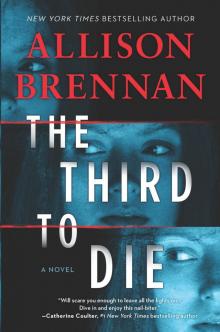 The Third to Die
The Third to Die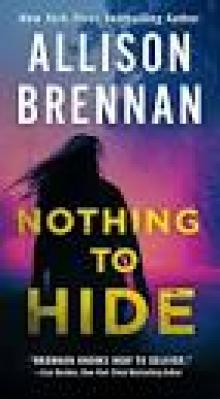 Nothing to Hide
Nothing to Hide No Way Out
No Way Out Cold as Ice
Cold as Ice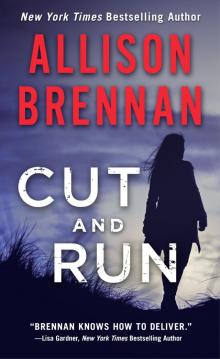 Cut and Run
Cut and Run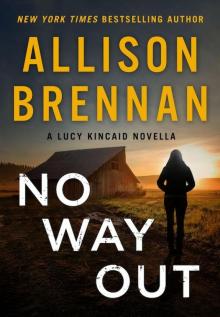 No Way Out (Lucy Kincaid Novels)
No Way Out (Lucy Kincaid Novels) Storm Warning
Storm Warning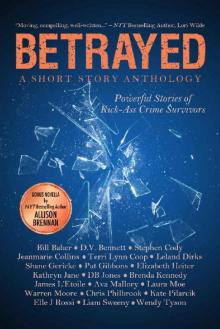 Betrayed: Powerful Stories of Kick-Ass Crime Survivors
Betrayed: Powerful Stories of Kick-Ass Crime Survivors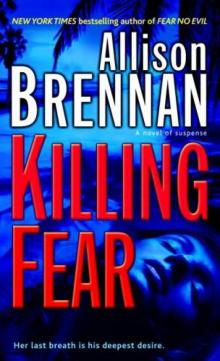 Killing Fear pb-1
Killing Fear pb-1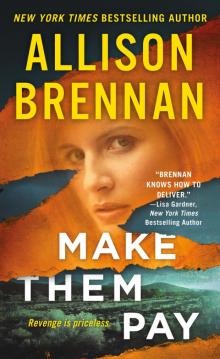 Make Them Pay
Make Them Pay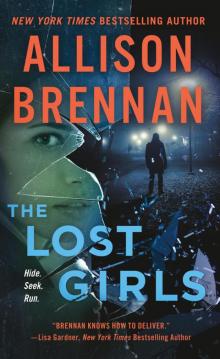 The Lost Girls
The Lost Girls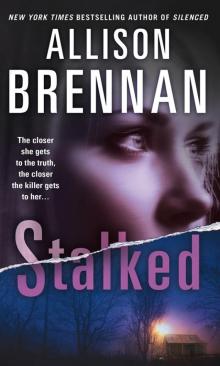 Stalked
Stalked Killing Justice
Killing Justice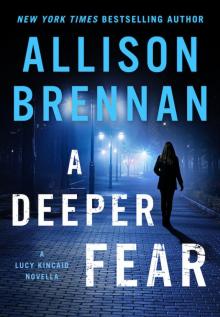 A Deeper Fear
A Deeper Fear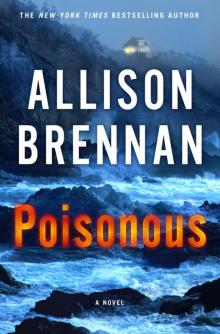 Poisonous
Poisonous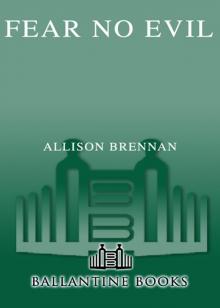 Fear No Evil
Fear No Evil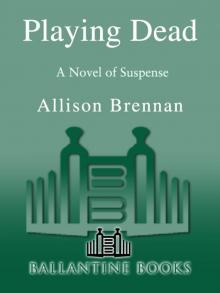 Playing Dead
Playing Dead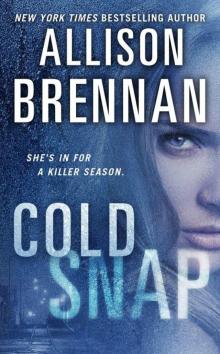 Cold Snap
Cold Snap Vacation Interrupted
Vacation Interrupted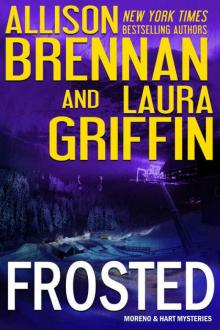 Frosted (Moreno & Hart Mysteries)
Frosted (Moreno & Hart Mysteries)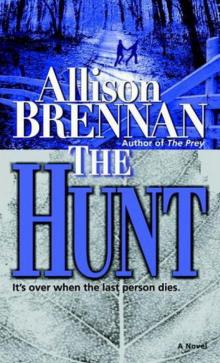 2 - The Hunt
2 - The Hunt Stolen
Stolen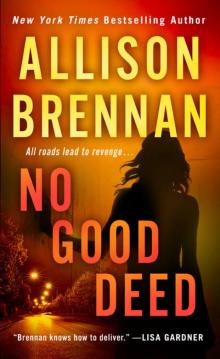 No Good Deed
No Good Deed Cutting Edge
Cutting Edge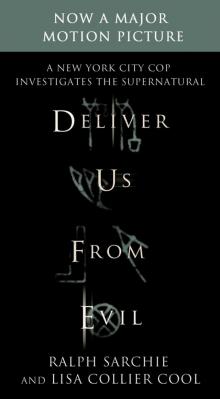 Deliver Us from Evil
Deliver Us from Evil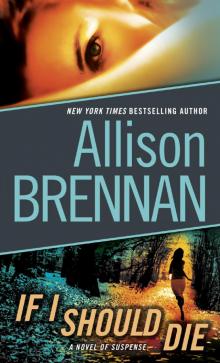 If I Should Die
If I Should Die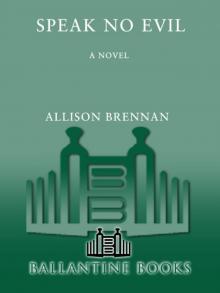 Speak No Evil
Speak No Evil Silenced lk-4
Silenced lk-4 Original Sin sds-1
Original Sin sds-1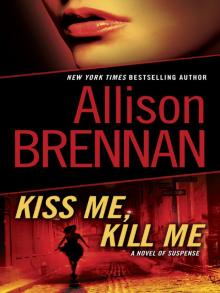 Kiss Me, Kill Me lk-2
Kiss Me, Kill Me lk-2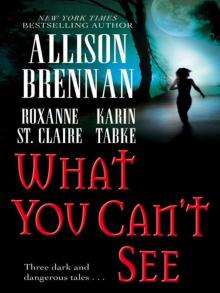 What You Can’t See
What You Can’t See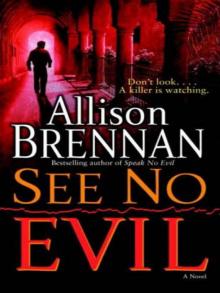 See No Evil
See No Evil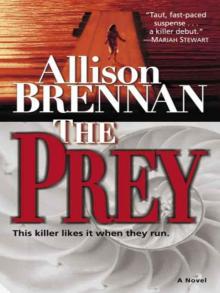 The Prey
The Prey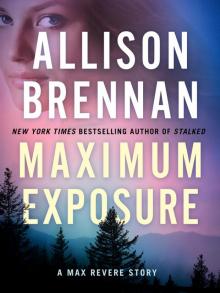 Maximum Exposure
Maximum Exposure Fatal Secrets f-2
Fatal Secrets f-2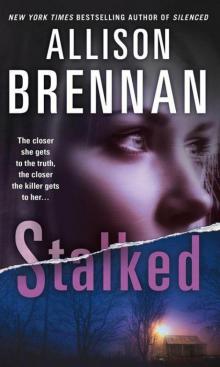 Stalked lk-5
Stalked lk-5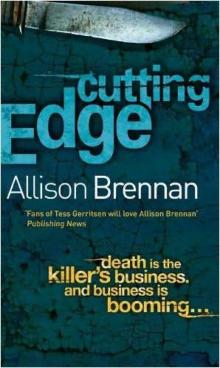 Cutting Edge f-3
Cutting Edge f-3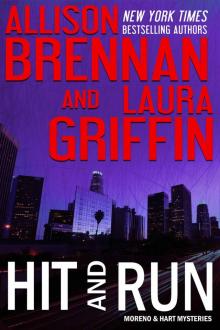 Hit and Run (Moreno & Hart Mysteries)
Hit and Run (Moreno & Hart Mysteries)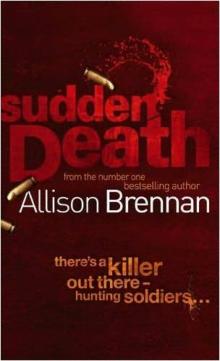 Sudden Death f-1
Sudden Death f-1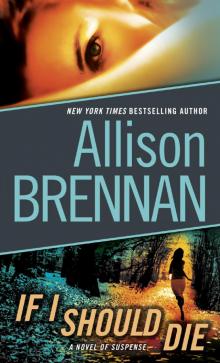 If I Should Die lk-3
If I Should Die lk-3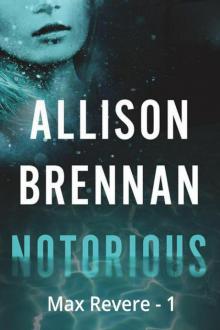 Notorious
Notorious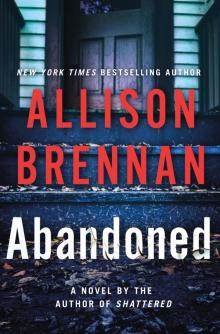 Abandoned
Abandoned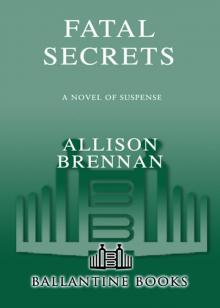 Fatal Secrets
Fatal Secrets The Hunt
The Hunt Carnal Sin sds-2
Carnal Sin sds-2 Love Is Murder
Love Is Murder Lost and Found
Lost and Found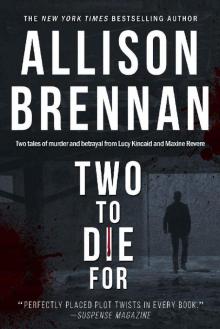 TWO TO DIE FOR
TWO TO DIE FOR Breaking Point
Breaking Point Best Laid Plans
Best Laid Plans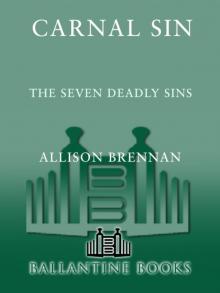 Carnal Sin
Carnal Sin Silenced
Silenced Dead Heat
Dead Heat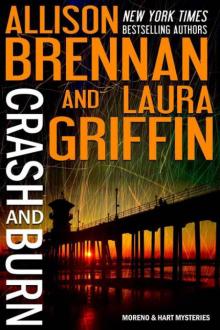 Crash and Burn
Crash and Burn Sudden Death
Sudden Death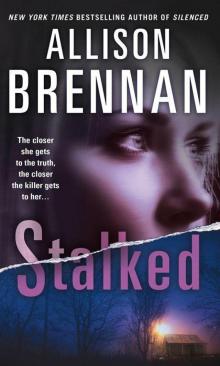 Lucy - 05 - Stalked
Lucy - 05 - Stalked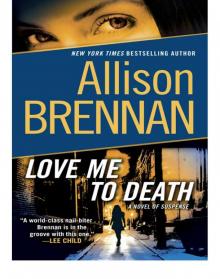 Mortal Sin
Mortal Sin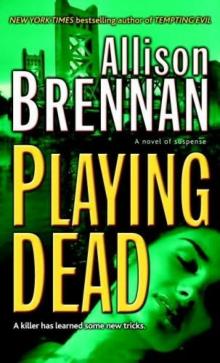 Playing Dead pb-3
Playing Dead pb-3 Kiss Me, Kill Me
Kiss Me, Kill Me Original Sin: The Seven Deadly Sins
Original Sin: The Seven Deadly Sins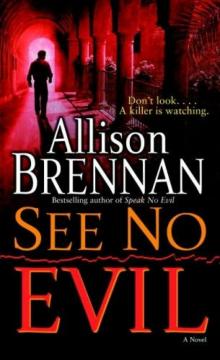 See No Evil e-2
See No Evil e-2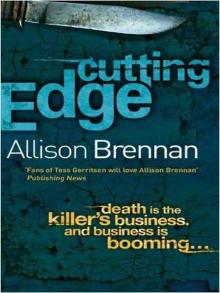 Cutting Edge: A Novel of Suspense
Cutting Edge: A Novel of Suspense Original Sin
Original Sin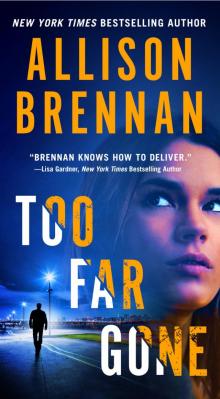 Too Far Gone
Too Far Gone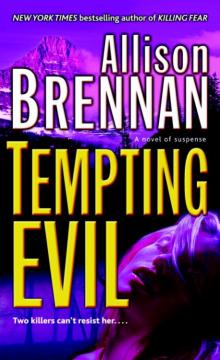 Tempting Evil
Tempting Evil Shattered
Shattered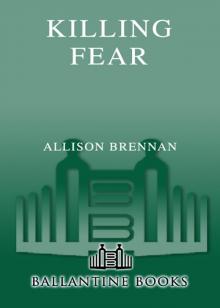 Killing Fear
Killing Fear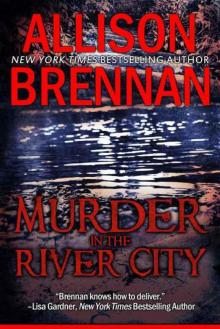 Murder in the River City
Murder in the River City Love Is Murder (lucy kincaid)
Love Is Murder (lucy kincaid)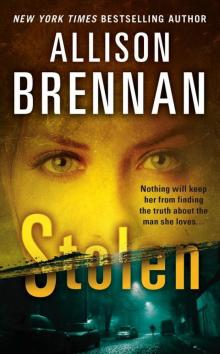 Stolen (Lucy Kincaid Novels)
Stolen (Lucy Kincaid Novels)